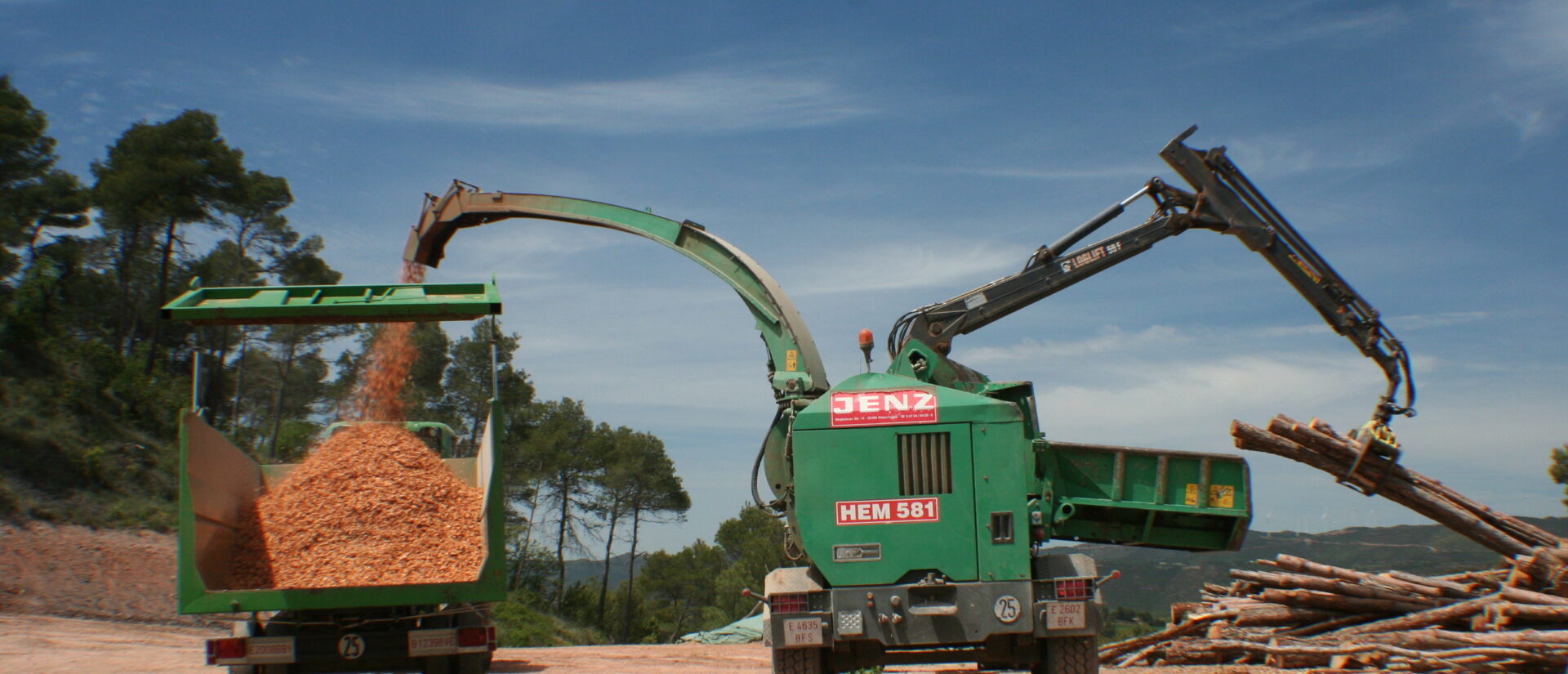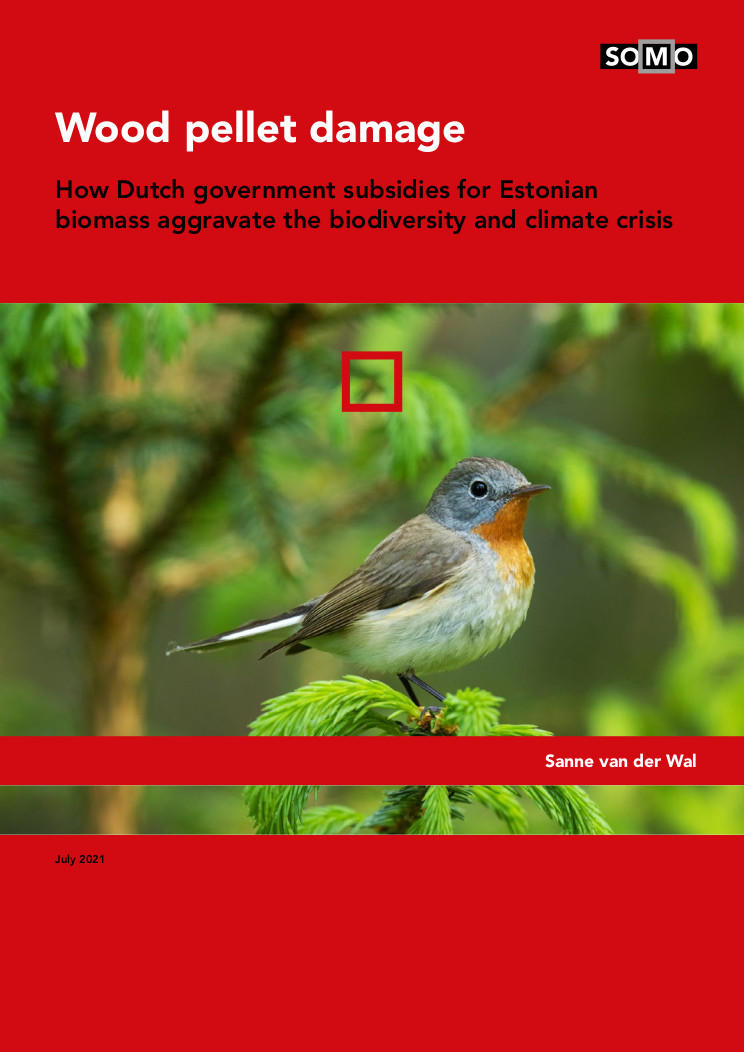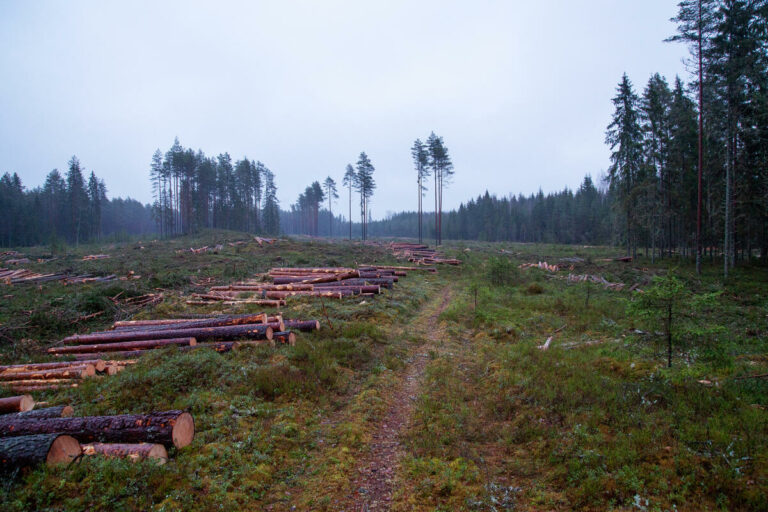
Faulty NEA investigation into unsustainable wood pellet production
Following SOMO’s publication Wood pellet damage (2021), the Dutch State Secretary of Economic Affairs and Climate Policy at the time, Dilan Yeşilgöz-Zegerius, ordered the Dutch Emissions Authority (NEA) to investigate the report’s findings. The results(opens in new window) were presented to the Minister for Climate and Energy Policy on 16 June 2022.
SOMO strongly disagrees with NEA’s main conclusion that production of wood pellets in Estonia for the Dutch market can be considered sustainable. SOMO believes that the NEA research is flawed because it is based entirely on desk research, while field research (which forms the basis for our research) is called for. The NEA research mainly focusses on the SOMO report’s examples and does not examine the broader systemic issues they illustrate. Moreover, for its assessment the NEA relies heavily on the views of actors with an interest in keeping the status quo, such as wood pellet producers and government inspection bodies.
More specifically, the NEA was asked by the government to determine whether:
- The areas which have violated sustainability requirements according to SOMO have been used to supply biomass to the Netherlands;
- The risks of violating sustainability requirements in Estonia can be estimated to be so low that sustainable forest management can be assumed.
No paper link to problematic logging
As to the first question, the NEA concluded that it is very unlikely that biomass was sourced for the Netherlands from sites that were portrayed by SOMO to illustrate systemic problematic logging in Estonia. NEA bases this claim on a review of the sustainable biomass sourcing policies which apply to the specific cases SOMO documented.
In the review, NEA discarded almost all of the examples cited in the SOMO report, largely for two reasons. For one, NEA claims half of these sites were logged before the Dutch sustainability criteria were applied in February 2020. However, even if this were true, the government already required FSC and/or PFEC certification in the two years prior to this date. This was also the case for these sites, and the criteria for these certifications are similar, if not more stringent than the Dutch criteria that were then developed. The other major group of discarded examples are those from larger forests, as the criteria at the time only allowed sourcing from smaller forest units. This may be true but, as the NEA also emphasises, suppliers only need to be able to account for having sourced sufficient wood that was logged in compliance with the criteria on paper. This means that in practice the wood from the discarded cases could nevertheless have been used for wood pellets for the Netherlands.
Sustainable forest management?
NEA’s answer to the second question is that forests are managed sustainably in Estonia because the procedures are followed correctly. Sourcing from peatland forest (as the SOMO report exposes) for example, does not violate the sustainability criteria because these are not officially recognised as peatland forests in Estonia. However, as the SOMO report argues, they undeniably are peatland forests from which sourcing is not permitted under the Dutch sustainability criteria. The NEA could have easily verified this on the ground. The same goes for the clearcutting near waterbodies highlighted by SOMO. Because the Estonian Environmental Inspectorate and the main supplier of Estonian wood pellets to the Netherlands claim there is no serious issue here, the case is closed, despite all the evidence to the contrary.
Improving the procedures and criteria for sustainable biomass
On a positive note, the NEA does make specific recommendations, such as need to have better and more meaningful stakeholder consultation, to improve the system to ensure that biomass is produced sustainably for the Dutch market. The Minster has already said he would take these into account in future reforms. Moreover, the NEA recommends more thorough investigations into a number of problems SOMO raises concerning production of biomass from forests, such as logging in peatland forest, adding to climate change by net CO2 emissions through the use of forest biomass, and inadequate government protection of Estonian forests with high conservation value.
Do you need more information?
-

Sanne van der Wal
Senior Researcher
Related content
-
Wood pellet damage Published on:
 Sanne van der WalPosted in category:Publication
Sanne van der WalPosted in category:Publication Sanne van der Wal
Sanne van der Wal
-
 Biomass production for the Netherlands is causing serious damage to Estonia’s natural environmentPosted in category:NewsPublished on:
Biomass production for the Netherlands is causing serious damage to Estonia’s natural environmentPosted in category:NewsPublished on: -
 SOMO stands by its research results: Biomass from Estonia causes serious damage to naturePosted in category:NewsPublished on:
SOMO stands by its research results: Biomass from Estonia causes serious damage to naturePosted in category:NewsPublished on:

